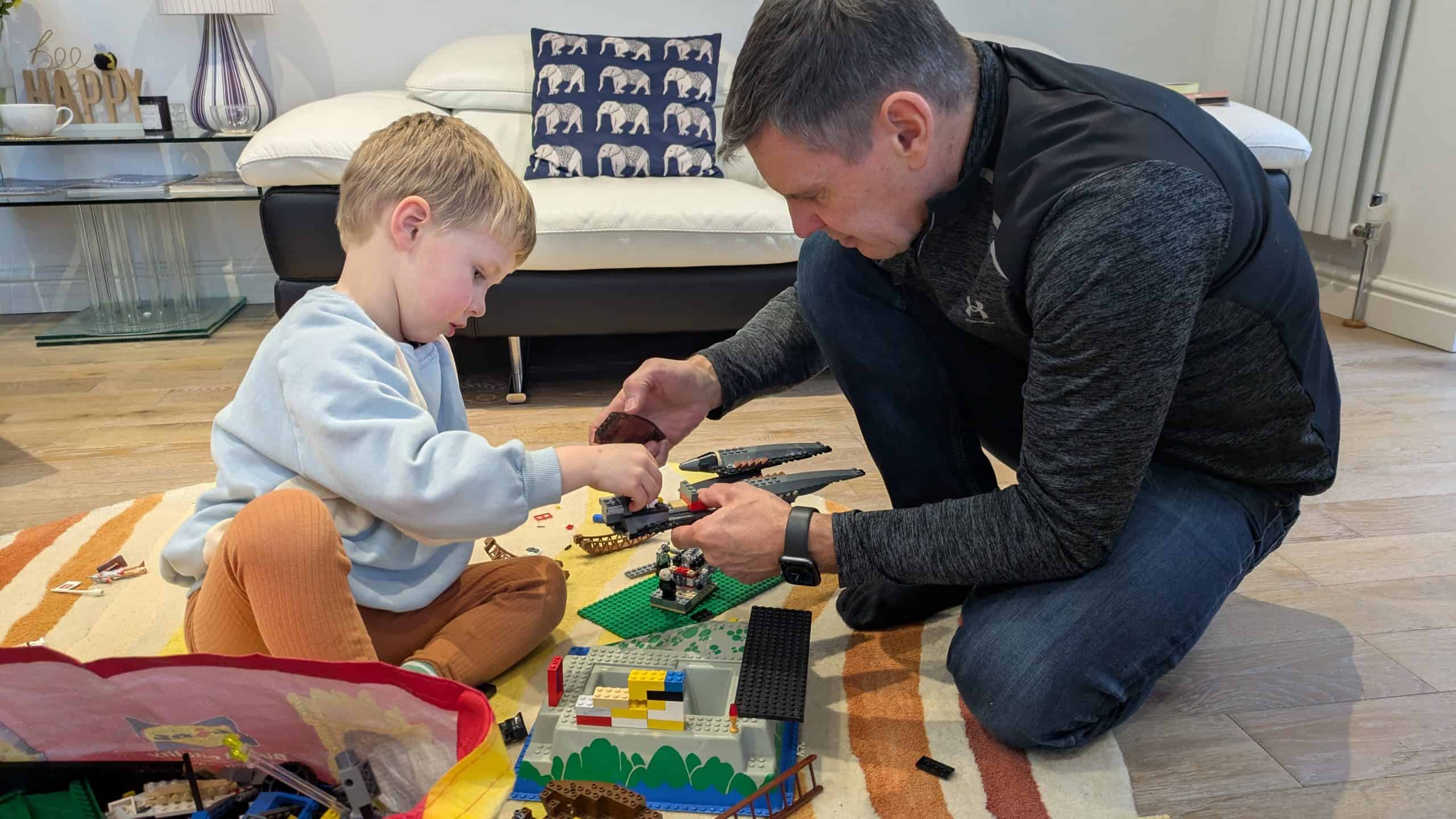When we think about routine, we often associate it with the structure we, as adults, need to stay organised, productive, and healthy. But routines are just as essential for children, if not more so.
Having a consistent routine can provide children with a sense of security, help them develop positive habits, and foster resilience. In our family, we’ve embraced outdoor adventures, physical activity, and family time as part of our daily routine, and we believe these experiences are crucial for raising happy, healthy kids.
This post explores why routine is so important for children, covering areas such as bedtime, healthy eating, outdoor activities, and playtime with parents. We believe routine extends further than bedtime and it helps to instil consistency in children from a young age. It’s not always possible and there will be times it goes to absolute shit but by trying to get back on the wagon quickly it can help both the children and yourself.
Why Consistent Routine Matters for Children
Children thrive on predictability. When they know what to expect, it helps reduce anxiety and provides a sense of security. Establishing a consistent daily routine allows children to feel in control of their environment, which is particularly important during times of uncertainty. Routines give children a sense of time, helping them understand when things will happen and what comes next.
A study by the University College London found that children with consistent routines, especially around bedtime, tend to have better emotional and behavioural health. Routine gives children the framework they need to navigate their world more confidently and lays the foundation for developing resilience.
It’s about creating habits that can shape their approach to life as they grow. This should extend past bedtime routines and into more day-to-day activities. Brushing teeth, making beds, helping create a picnic, and walking to school. Habits should be built into all aspects of day-to-day life.
The Power of Habit Building
The habits children develop early in life are often carried into adulthood. Establishing a routine is one of the best ways to encourage positive habits. Whether it’s making the bed in the morning, brushing their teeth twice a day, or spending time outdoors after school, consistency is key. James Clear, author of Atomic Habits, explains that the sooner we start building positive habits, the easier they become ingrained into our everyday lives.
For children, this means that creating routines around healthy practices—like daily exercise, nutritious eating, and quality sleep—can have long-term benefits for their physical and mental health. An example of our own life is our commute to school (I mention this a lot but it’s a great habit). Our daughter goes on foot or by bike whatever the weather. If school is open we travel either by walking or cycling. This is a habit we instilled in her from her first day at school. It’s just less than a mile so although it’s not a huge distance it still takes time on foot. Many around us have stopped walking; despite living I similar distance from school.
She’s now of the mindset that it’s what we do and it’s part of our DNA. She’s never questioned it and I hope she never does as it’s a habit I’d love for her to take into her adult years.
By incorporating these activities children come to see these actions as a natural and enjoyable part of their day, rather than an obligation.

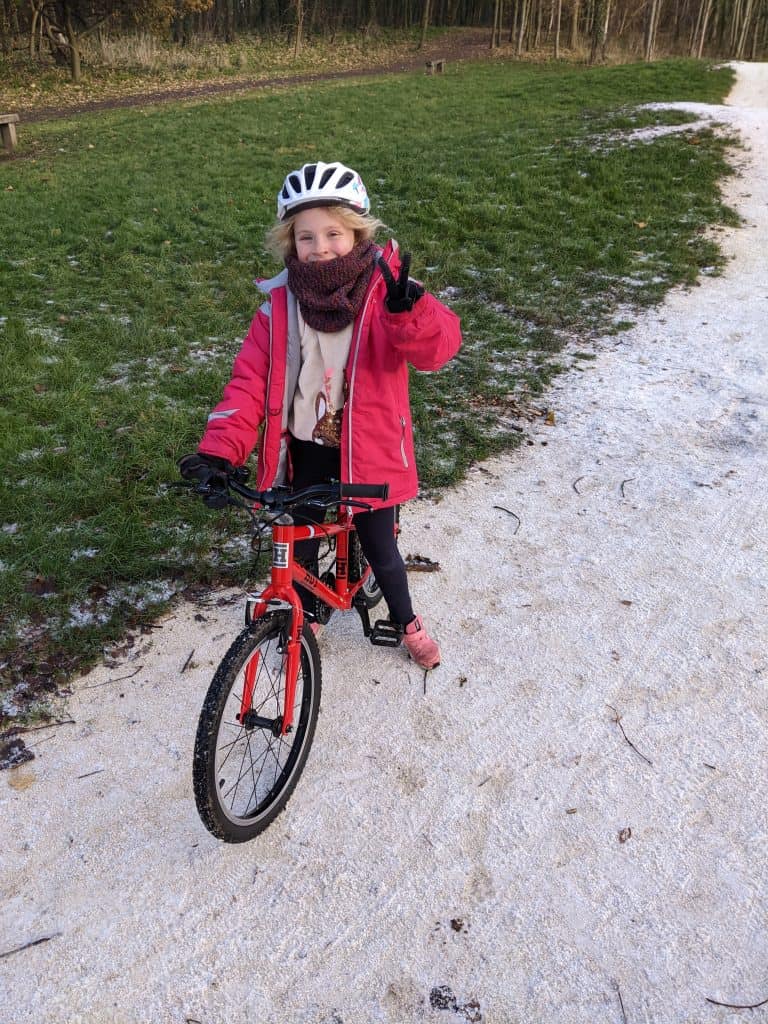
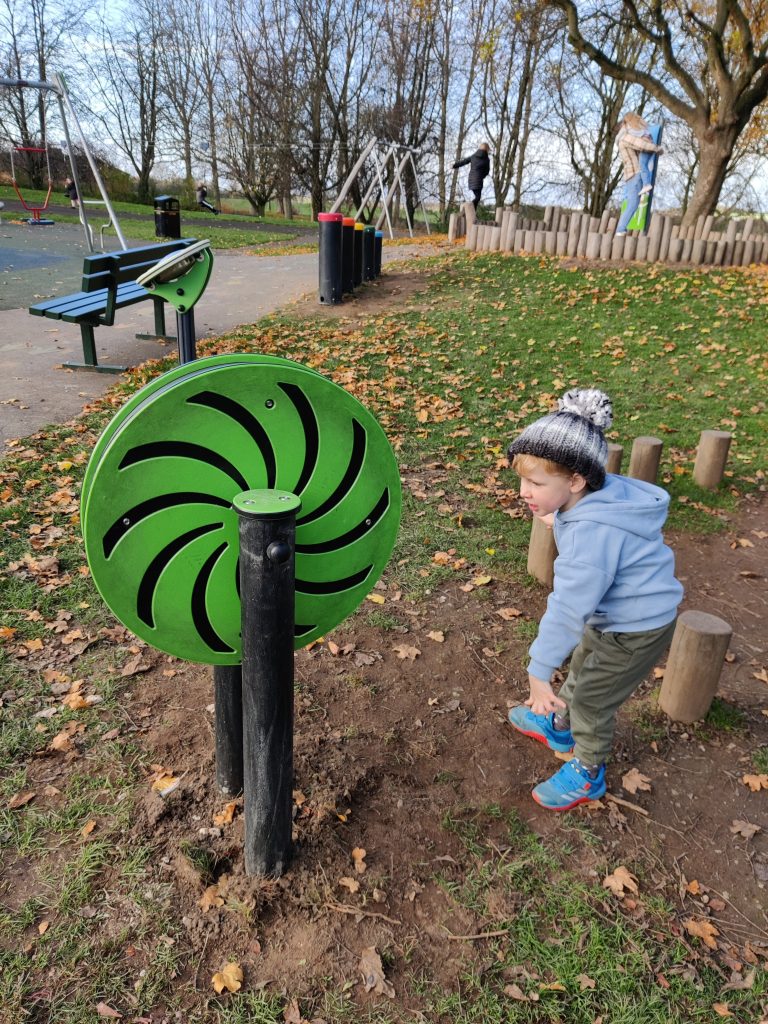
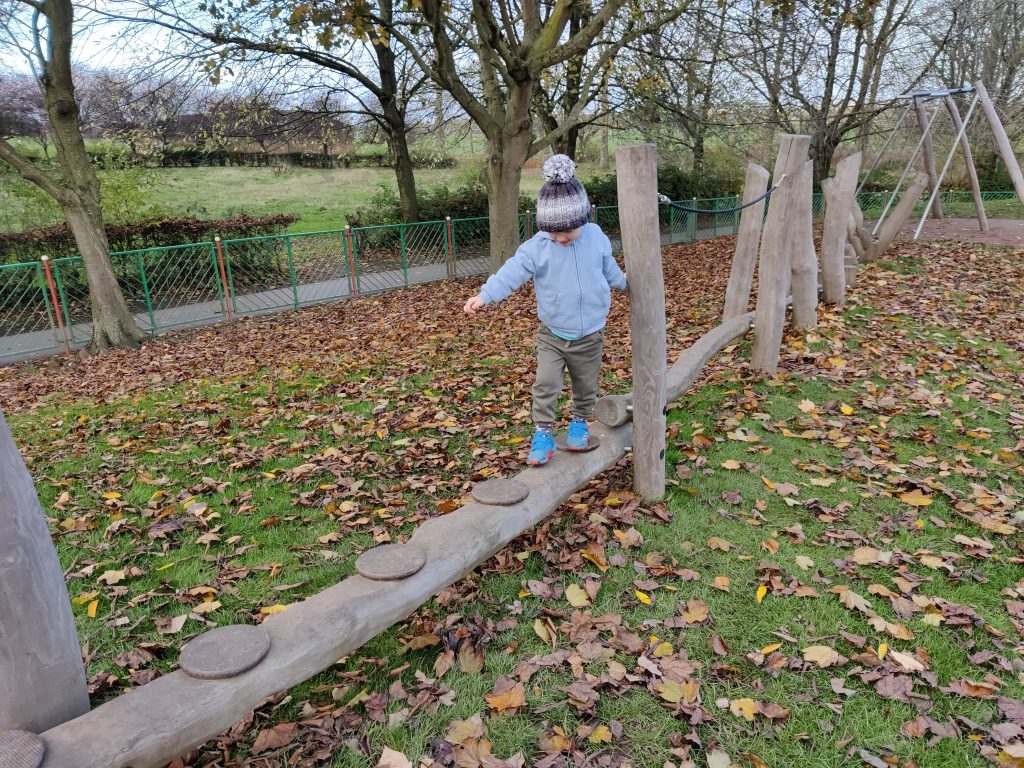
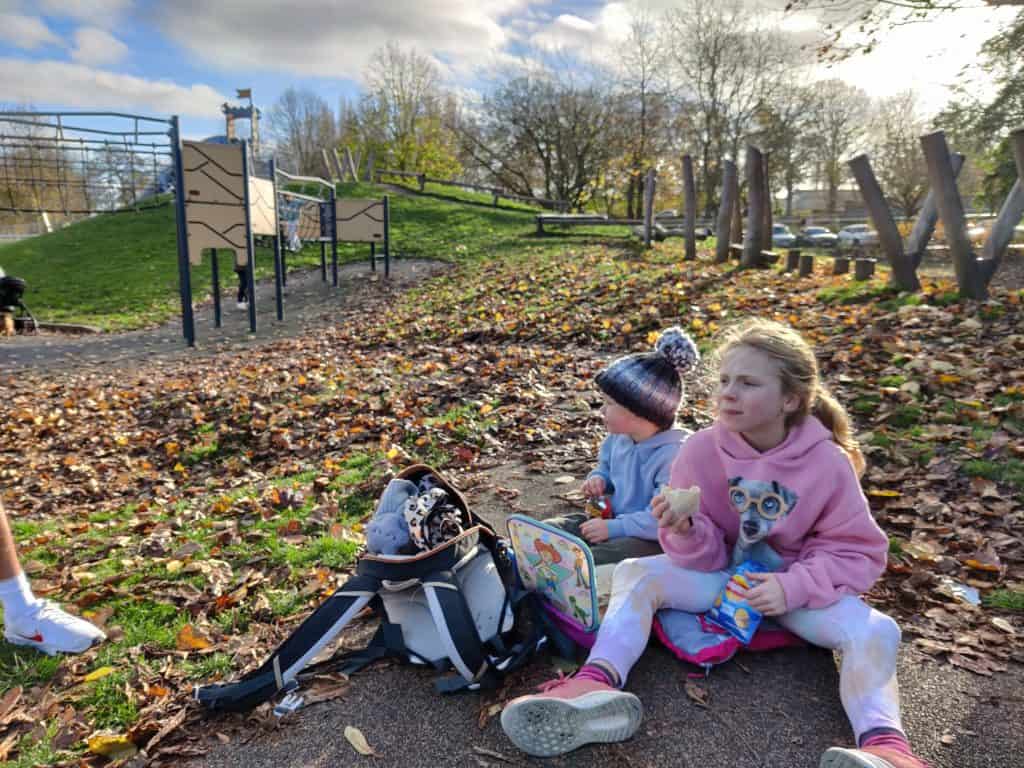
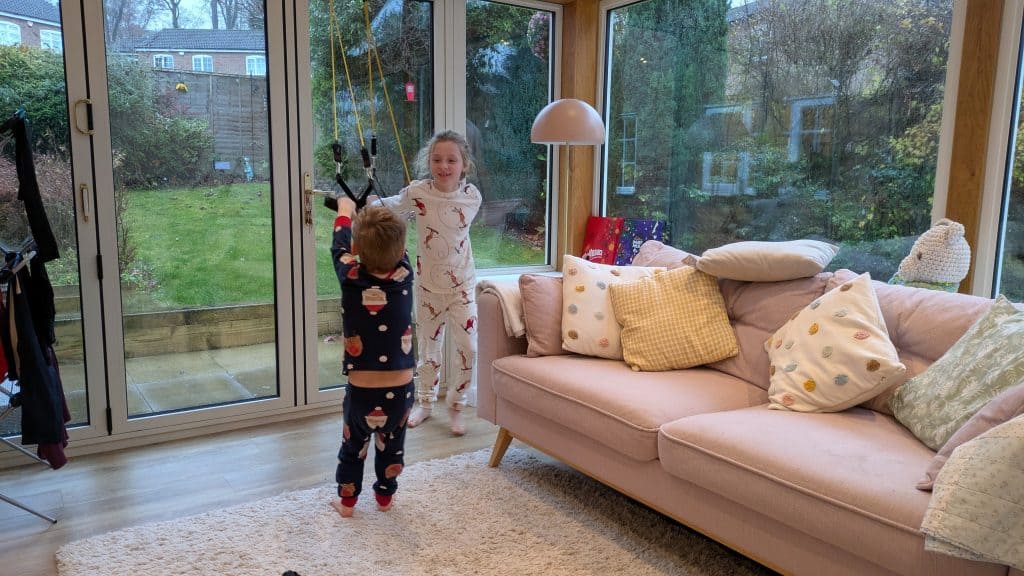
Healthy Diet as Part of Routine
The food children eat impacts their development and well-being, both physically and mentally. Establishing a healthy diet as part of the daily routine helps set the tone for balanced eating habits that can last a lifetime.
In our family, we prioritise meals that are nutritious and enjoyable, helping Matilda and Barney understand that healthy food doesn’t have to be boring. Our kids are actually quite basic eaters but we will try a bunch of foods in the hope they enjoy one of them. Don’t get me wrong they are partial to an Ice Cream but their day-to-day eating is consistent with a healthy diet.
Another area we seem to kept our kids healthy is via water only. Both don’t seem to like the taste of juice nor have we tried to introduce it into their diet. They’ve tried it but much prefer water. I believe this is part of the habit and routine of us as parents. Neither of us has any cold drinks other than water.
A healthy diet supports cognitive function, mood stability, and physical growth. According to the British Nutrition Foundation, children who eat balanced diets that include a variety of fruits, vegetables, and proteins tend to have better focus and energy levels throughout the day.
Routine helps make healthy eating a consistent part of daily life.
The Bedtime Routine: Consistency is Key
Sleep is essential for children’s growth and development, and having a consistent bedtime routine can help ensure they get the rest they need. Setting a specific bedtime and following consistent steps—such as bath time, storytime, and lights out—provides a predictable sequence that signals to children that it’s time to wind down.
Nobody is perfect and we’ve struggled with this with both children. They have bundles of energy and we tend to spend the Summer travelling Europe so the consistency can be impacted a little. There are also sports clubs and varying times which can impact this.
We do however when at home try and maintain a consistent bedtime which means we avoid really late nights or changes to the routine.
Evidence does suggest however that a consistent bedtime routine is shown to help children fall asleep faster, stay asleep longer, and wake up feeling rested. According to a 2018 study by the University of Warwick, children who have regular sleep patterns tend to have better attention spans and fewer behavioural problems compared to those with inconsistent sleep schedules.
In our home, bedtime isn’t just about getting enough sleep. Both our children enjoy the quiet time with their parents. It often involves building Duplo with Barney (or smashing Duplo down), reading books and talking about the day. It’s not always a peaceful transition and some days aren’t perfect but we get back on the horse the next day.
Routine shouldn’t be seen as boring but a consistency you need to lead a happy, healthy, life.
Outdoor Time and Nature as a Vital Part of Routine
We’re big believers in the power of outdoor adventures. For us, outdoor time isn’t just a weekend treat—it’s a key part of our routine. Whether it’s cycling to school, going to a park after school or being part of an after-school sports club. It’s a huge part of our weekday routine as well as the weekend.
Research shows that spending time in nature can have a multitude of benefits for children’s well-being, including improved mood, better focus, and reduced stress levels. A report from Natural England found that children who spend regular time in nature have higher levels of happiness and lower rates of anxiety.
Being in nature encourages children to be physically active, build resilience, and engage their imagination.
Regular outdoor time as part of a child’s routine ensures they grow up feeling connected to the natural environment, appreciating its value, and staying physically active.
As a caveat, I believe this is one of the reasons for the rise in Litter across the UK. I believe the increase in screen time and less time outdoors has produced a disconnect between the natural world and humans. Kids aren’t exposed to their environment and what it offers so they don’t respect it in the same way. This is of course a huge generalisation but time outside takes time and in a rushed world it’s reduced down the list of importance.
Regular Playtime with Parents
Children thrive when they spend quality time with their parents, and play is one of the best ways to connect with them. Incorporating regular playtime into the daily routine allows parents and children to bond, laugh, and create meaningful memories together. Whether it’s drawing, playing hide-and-seek, building Lego creations, or cycling together, this kind of shared playtime has tremendous benefits for both parent and child. The National Society for the Prevention of Cruelty to Children (NSPCC) highlights that children who have frequent positive interactions with their parents tend to have better emotional development and stronger parent-child relationships.
Not only does this have a huge impact on the children but also the parents. Adulthood is a never-ending to-do list but play is important. The article ‘Why do we stop playing’ by Shannon Watts highlights this nicely.
Monday-Friday can turn into back-to-back school and work without any meaningful play between parents and children. We try to make time for play every single day and this can sometimes come as a result of working less but it means everyone experiences joy and happiness what play brings.
It can be as simple as throwing a ball around for 10 minutes, watering the plants or heading to a park. These unscripted moments are what build the structure of your child.
Taking Time Off Together
In our busy lives, it’s easy to overlook the importance of taking time off. But setting aside time to be together as a family—away from school, work, and other responsibilities—is crucial.
Evenings, weekends, and Summer holidays. They are all important for routine as a family unit. These moments also help foster connection and provide children with a much-needed break from routine demands.
Time off together doesn’t have to be elaborate or costly. The goal is to create opportunities for genuine family bonding, exploration, and relaxation. These shared experiences build resilience, strengthen family ties, and provide a sense of stability that children carry with them throughout their lives.
Conclusion
Building a consistent routine for children offers numerous benefits—from better sleep and healthier eating habits to improved mood, increased resilience, and stronger family relationships.
As parents, our goal is to create a nurturing environment where Matilda and Barney can thrive. Routine is a powerful tool that helps us achieve that goal, giving our children the structure they need to feel safe, confident, and happy. Furthermore, it helps us as adults and reinforces the fact that these routines are healthy for us too.
Parents are quick to create a routine in their child’s life but miss that habits are instilled by you as parents. You have to get your own routine and habits together too! Working too much, eating unhealthy, not playing with your kids as you are tired from the day. These things have an impact on you and the children. It’s a double-edged sword.
By incorporating elements like bedtime consistency, outdoor adventures, playtime, and shared moments together, we’re not only providing a routine—we’re creating a foundation for lifelong well-being.
It’s all about instilling positive habits that children will carry with them, ensuring they grow up with the tools they need to live healthy, fulfilling lives.
Sources
- University College London study on consistent routines and emotional health: https://www.ucl.ac.uk
- James Clear, Atomic Habits: https://jamesclear.com/atomic-habits
- British Nutrition Foundation on balanced diets for children: https://www.nutrition.org.uk
- University of Warwick study on regular sleep patterns: https://warwick.ac.uk
- Natural England report on children and nature: https://www.gov.uk/government/organisations/natural-england
- NSPCC on positive parent-child interactions: https://www.nspcc.org.uk
Last Updated on January 29, 2025 by Ryan
Hello. I am Ryan and along with my wife Beth and our two children Matilda and Barney, we love all things cycling and exploring. We spend our weekends exploring fun places to cycle and discover and wanted to help other people do the same too. There’s no better way to travel than via bike and it’s an amazing activity for the whole family to enjoy.

